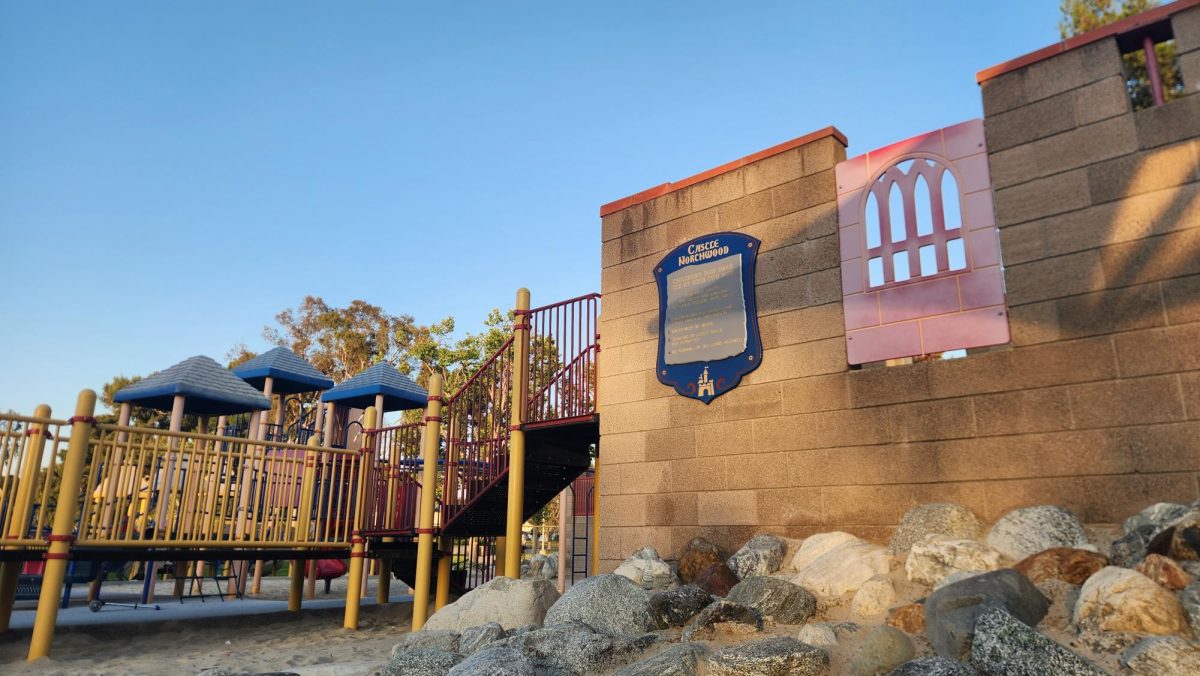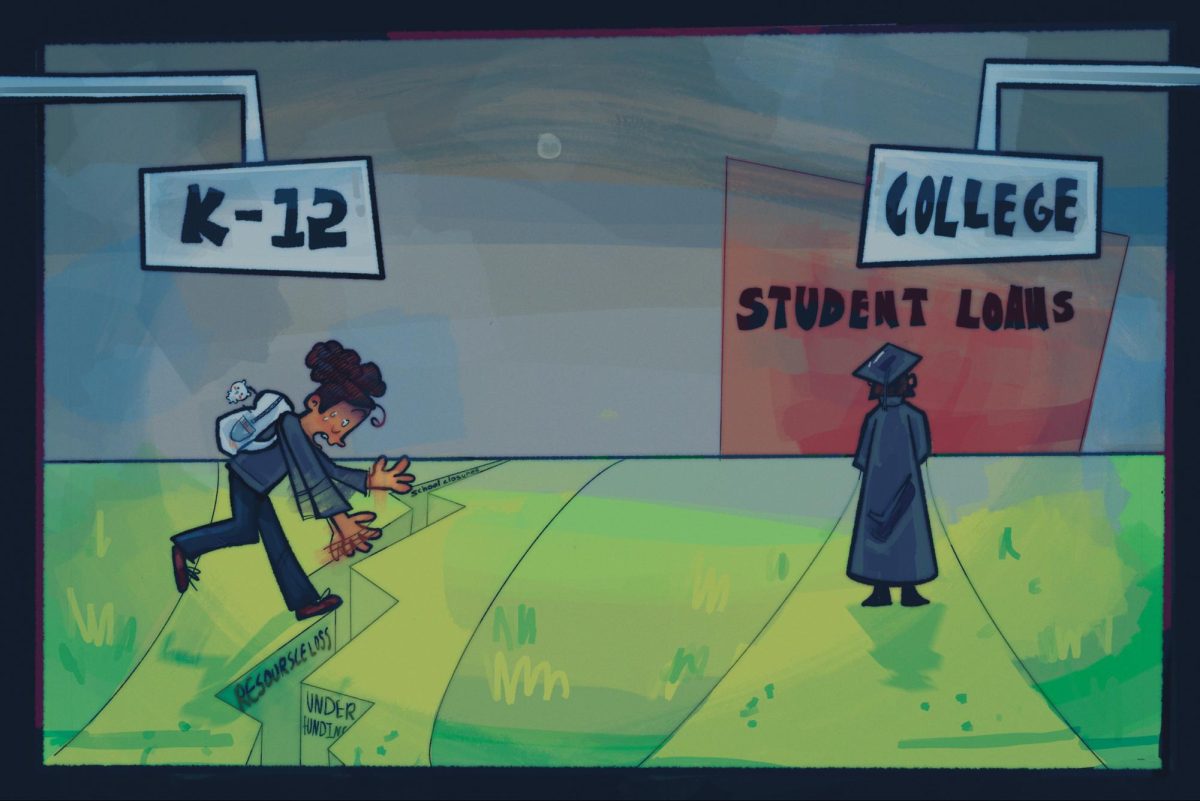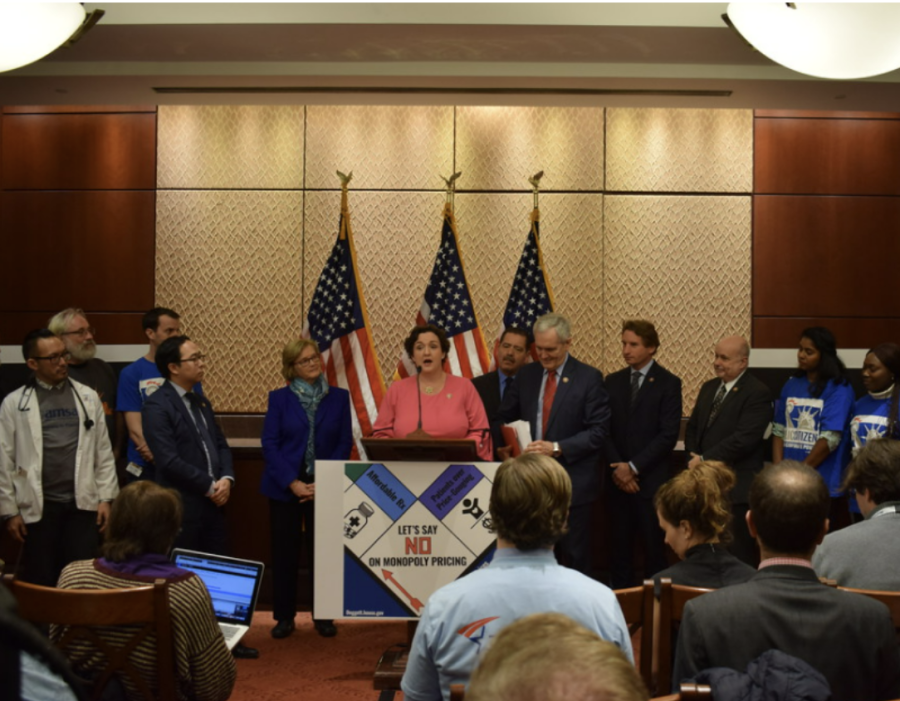Irvine faces division in redistricting
Irvine in D.C.: U.S. Rep Katie Porter speaks with constituents at an anti-monopoly campaign stop introducing the Medicare Negotiation and Competitive Licensing Act on Feb. 7, 2019.
January 12, 2022
The California Citizens Redistricting Commission released maps of new California Congress, state Senate and Assembly districts, reflecting federally mandated adjustments resulting from the 2020 census. Finalized by the CA Secretary of State on Dec. 27, 2021, these maps will stand for the next decade, dividing Irvine (which is currently cohesively in the 45th Congressional district) into North and South segments.
Orange County’s 48th District Republican Rep. Michelle Steel and 45th District Rep. Katie Porter have both been cited by The Hill as prone to facing repercussions, as Steel gained the most Democratic-leaning portion of Irvine while Porter gained the Republican-leaning cities of Chino Hills and Yorba Linda. As a political battleground, Orange County would likely see close races in the 2022 midterms with 6 seats up for grabs, down from the previous 7.
Porter announced that she would seek reelection in the new 47th district, while Republican Rep. Young Kim announced reelection plans in Porter’s former 45th district.
“Roughly two-thirds of voters in the 47th District have not previously been represented by Congresswoman Porter, and she looks forward to introducing herself to these voters and running a positive and spirited campaign, as she did to win close races in 2018 and 2020,” Porter’s spokesperson Jordan Wong said to The Hill on Dec. 21.
Before the final maps were confirmed, Irvine’s split on the Congressional level in draft maps raised concern among the Irvine City Council. The council subsequently passed a resolution “requesting contiguity in Irvine’s redistricting” based on Nov. 23.
“With an interconnected set of roads and open space, national recognition for its school system and public safety data and high levels of social progress and equity across neighborhoods, Irvine is truly a unified community of interest, and we need it incorporated in its entirety within one Congressional district, one State Senate district and one State Assembly district,” councilmember Larry Agran said in a press release on Nov. 24.
During public-input meetings throughout December, the independent commission faced backlash from Irvine residents regarding its responsibility to prevent racial discrimination in voting as per the 1965 Voting Rights Act.
“Where it can start to get problematic is when minority groups are divided because it essentially makes their vote smaller in comparison to their white constituents,” junior Sarah Murdaah said. “It’s all about the issue of representation and having one person’s vote count as much as the other.”
Final maps revealed the increasing power of Latino voters as 16 Congressional districts would have at least 50% of “Latino citizens of voting age… up from the 13 in the current map,” according to the Washington Post.
“This is a substantial increase in the potential for candidates supported by the Latino community to be elected to Congress,” President of the Mexican American Legal Defense and Educational fund Thomas A. Saenz said to the Los Angeles Times on Dec. 20. “It’s a long time coming and appropriate for a state that is now 40% Latino in population and 27% of registered voters.”
As the Democratic party holds a slim majority in the House of Representatives, the 2022 midterm elections along with California’s Congressional lines have been highly anticipated as Politico reports that completed nationwide redistricting currently leans in favor of the Republican party. California is one of only eight states to carry an independent redistricting commission, whereas the rest of the states have redistricting in control of state legislatures.
“CA’s commission system is far better than having a state legislature gerrymander districts for partisan advantage, but while a handful of states utilize independent commissions, most other states still allow the politicians to draw their own districts,” AP Government teacher Steve Plette said. “So in a perverse way, the states that are engaging in good governance practices are going to lose to those states controlled by politicians who have no problem rigging the system in their favor.”
The new districts will take effect with the June 2022 primaries. Comments regarding redistricting can be submitted on www.wedrawthelinesca.org/contact.

























































